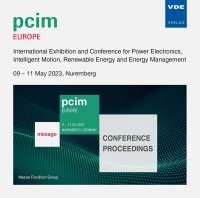Relevance and Range Benefit of Wide Bandgap Power Semiconductors in Autonomous Battery Electric Vehicles
Konferenz: PCIM Europe 2023 - International Exhibition and Conference for Power Electronics, Intelligent Motion, Renewable Energy and Energy Management
09.05.2023-11.05.2023 in Nürnberg, Germany
doi:10.30420/566091227
Tagungsband: PCIM Europe 2023
Seiten: 9Sprache: EnglischTyp: PDF
Autoren:
Denk, Marco; Arbeiter, Georg (University of Applied Sciences Coburg, Germany)
Hohmann, Fabian; Hain, Stefan (ZF Friedrichshafen AG, Tech Hub Bayreuth, Germany)
Inhalt:
This paper reviews pioneering approaches to improve electric mobility and clusters them into an ‘electric platform’ and a ‘connected driving’ world. To investigate if both worlds can benefit from each other the SiC technology is considered in an autonomous car with SAE level 4. It appears that SiC generates a much greater advantage here than in a BEV with SAE level 2. Firstly, this is due to the driving strategy, which tries to reduce driving resistances and therefore often operates the drivetrain in partial load where SiC enables significantly reduced losses. Secondly, the drive strategy can control the vehicle in a way to exploit the advantages of SiC best. In summary, the energy savings due to reduced driving resistances and due to SiC add up so that an autonomous car with SiC inverter needs 4,51 kWh/100km less energy (-38%) than a BEV with SAE level 2 and Si IGBT inverter to travel the same distance in same time.


